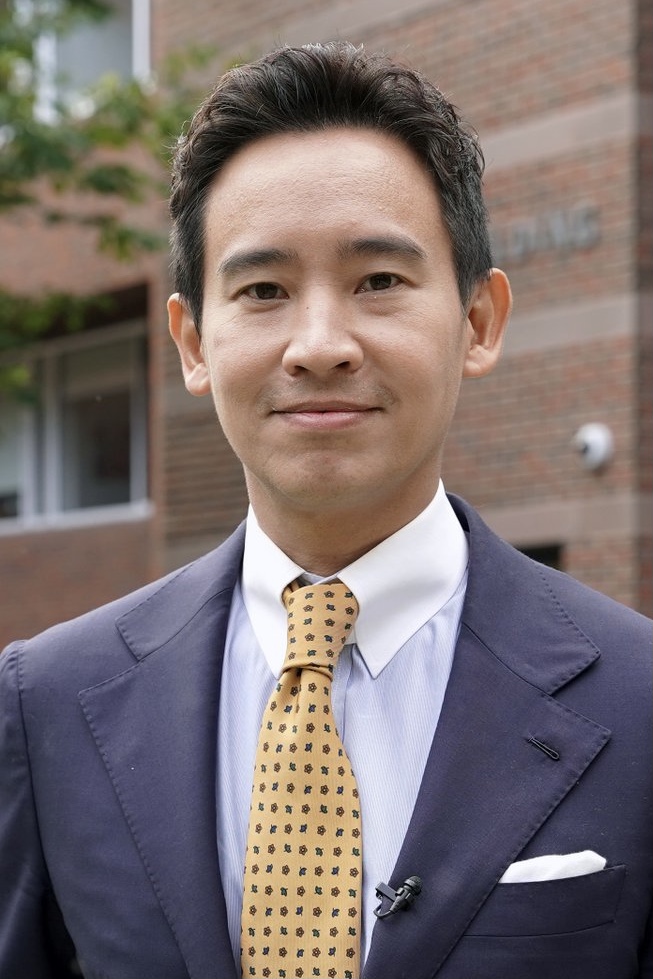
In May 2024, former senator Bam Aquino unveiled his plans for the 2025 midterm elections and announced the formation of a new political party, the Katipunan ng Nagkakaisang Pilipino (KANP) or Society of United Filipinos in English. The birth of this new party, sparked by former Vice President Leni Robredo’s 2022 presidential bid, offers a fresh alternative for Filipinos, particularly the youth. The KANP’s emergence not only presents a potential game-changer against traditional politics and politicians but also instills a profound sense of hope and optimism for a reshaped Philippine political landscape, inspiring the Filipino youth to believe in a brighter future.
The emergence of the KANP and the active participation of the youth are not isolated cases but are part of the bigger picture in the Southeast Asian region. Thailand held its elections last year, and the Thai people’s demands against the military leadership of former Prime Minister Prayut Chan-o-cha were echoed in their votes when the social-democratic Move Forward Party topped the polls. Supported by the young generation, the party is also known for its progressive platforms, including legalizing same-sex marriage, removing compulsory military conscription, and amending the lese majeste law, which imprisons people for three years to 15 years for insulting, defaming, or threatening the Thai monarchy. Similarly, the KANP’s progressive platforms have engaged the Filipino youth, making them feel involved and part of a significant movement for change.
Under Pita Limjaroenrat’s leadership, the party turned the public spaces into a sea of supporters and instilled hope among the Thai people. Despite his massive popularity, he failed to form the government and become the next prime minister of their country due to the blockade of military-appointed senators, who outnumbered their coalition in parliament. In addition, the Move Forward Party has recently disbanded due to the petition from the conservatives because of their progressive platforms challenging traditional Thai politics and quickly incarnated into a new party. These challenges, however, have kept the party’s popularity among the Thai youth, highlighting their resilience and commitment to their cause.

A pivotal moment looms as the Philippines gears up for its senatorial and local elections next year. Could the KANP’s formation herald a new era in Philippine politics akin to the transformative role of the Move Forward Party in Thailand? While not definitive, these questions underscore the potential impact of the KANP on Philippine politics. The party’s emergence could reshape the country’s political landscape and present an exciting prospect of change, particularly in youth involvement and progressive platforms, sparking excitement among the audience.
Reflecting on the lessons from Thai politics, here are some key takeaways that the KANP can leverage from the Move Forward Party’s experiences. These insights can be instrumental in enhancing the KANP’s strategies for the upcoming 2025 midterm elections, potentially shaping the party’s future and its impact on Philippine politics.
The power of the youth
In 2020, Thailand witnessed the re-emergence of student activism when the students participated in street demonstrations expressing societal concerns and demands challenging their institutions. They supported the Move Forward Party due to its progressive platforms.
The KANP’s challenge is sustaining Filipino youth’s energy during the last elections. The harsh realities of the 2022 election results might still be disheartening for their young supporters of the Robredo camp. However, if the KANP could inspire and train the youth to engage in their communities again or even enter politics, it could be an excellent start for the new party. The youth, if adequately mobilized, could significantly influence the outcome of the upcoming elections. Some ways to activate this potential include student councils and organizations, youth networks, volunteer groups, and the Sangguniang Kabataan (Youth Council).

A clear opposition
In recent Thai politics, the clear opposition and the Move Forward Party’s ability to not compromise with the pro-military junta parties are something to envy. Student networks and pro-democracy groups also put their differences aside to support a government for the people, prevent another military leadership, and ensure the return of democracy in Thailand.
Suppose the KANP aims to win the midterm elections. In that case, it must establish itself as the clear opposition to the Ferdinand Marcos, Jr. and Sara Duterte leadership. This strategic move of uniting the opposition groups for a common goal is crucial. The party must also demonstrate that it is not just a rehash of the traditional parties and avoid compromising its principles with the political dynasties to win the elections.
Change is not a solitary endeavor but a collective action and ongoing process
The victory of the Move Forward Party in its elections only shows that if we want real change in our society, we must achieve it slowly and collectively. The party’s beginning can be rooted in the impressive start of its predecessor, the Future Forward Party. The party gained considerable support from the youth and parliament seats as a new party during the 2019 elections. This remarkable result, however, was challenged when the Constitutional Court dissolved it. This dissolution paved the way for the re-emergence of the student movement in 2020 and the formation of its successor, the Move Forward Party. Fast forward to 2023, it was surprising for some that the party would become the largest party in the lower house, and the Thai people would immediately accept their progressive platforms.
The popularity of the Move Forward Party could signal a new beginning for Thailand. However, various barriers and challenges remain in this transformation process. Last August 7, the Constitutional Court of Thailand dissolved the party, and its executives were banned for ten years from politics for posing a threat to the constitutional monarchy and national security by campaigning to amend the lese majeste law. Two days later, the party regrouped and launched its new avatar, the People’s Party, a namesake for the People’s Party or the Khana Ratsadon, which launched the democratic revolution in 1932 that ended the absolute monarchy in Thailand.

Looking at the bright side, their triumph in the elections also reminds the Filipinos of the urgent need for a clear opposition and the importance of consensus-building to achieve the democratic society they want. It underscores that a united front is crucial in the fight for democracy. If the KANP could join forces with the other groups in the opposition, then it could be a genuine unity, far from the unity promised by the Marcos and Duterte families.
The Move Forward Party’s win in the 2023 elections inspires Filipinos to have an electorate that will side with progressive and pro-democracy platforms. 1 Their victory highlighted the undeniable power of youth, the importance of clear opposition, and the acceptance that change is collective action and does not happen overnight.
Although there are nuances between Philippine and Thai politics, there’s no harm in trying if the KANP follows the Move Forward Party playbook. No matter how the government forces trample the opposition, they continue to rise above the ashes for the sake of the people. Despite being more democratic than Thailand, Thailand’s recent experiences can serve as a valuable benchmark for improving Philippine democracy. The KANP, if successful, could bring about a significant shift in the Philippine political landscape, particularly in youth involvement and progressive platforms.
Gil D. Turingan
Gil D. Turingan, a Filipino licensed professional teacher, is a resident of Bangkok and a newly minted Ph.D. in Thai Studies at the Thai Studies Center, Faculty of Arts, Chulalongkorn University, Thailand. He is currently teaching in one of Thailand’s leading government schools. He specializes in Contemporary Thailand topics such as Thai democracy, student movements, and public monuments. His doctoral thesis, successfully defended last November 2023, titled “Movements and Monuments: Student Movements for ‘Democracy’ in 1973 and 2020 Public Monuments in Thailand,” focuses on the discourse of Thai democracy and student movement in Thailand.
Notes:
- In August 2024, Thailand’s Constitutional Court ordered the dissolution of the progressive Move Forward Party (MFP), citing its campaign to amend the country’s strict lèse-majesté law (Article 112) as an attempt to undermine the constitutional monarchy and national security. The court also imposed a 10-year political ban on 11 of the party’s executives, including former leader Pita Limjaroenrat and current chief Chaithawat Tulathon . Despite winning the most seats in the 2023 general election, MFP was blocked from forming a government by the military-appointed Senate, which opposed its reformist agenda. The dissolution has drawn criticism from human rights groups, who view it as part of a broader crackdown on progressive movements in Thailand. Remaining MFP lawmakers have 60 days to join a new party to retain their parliamentary seats, and the party has announced plans to continue its mission under a new political entity called “The People’s Party.” ↩
